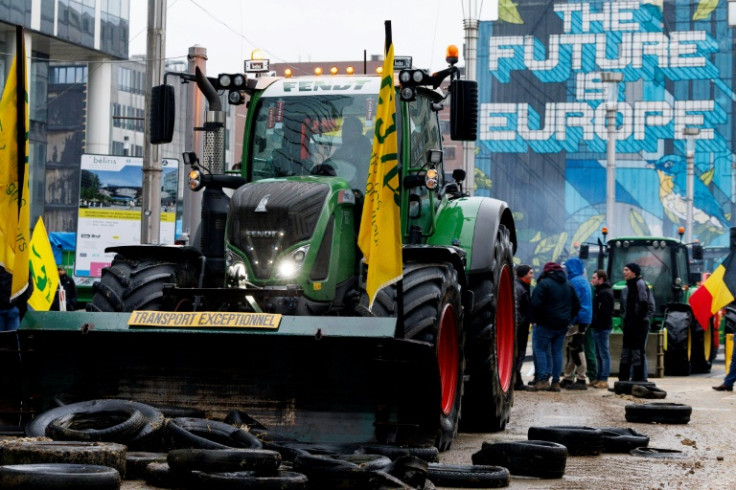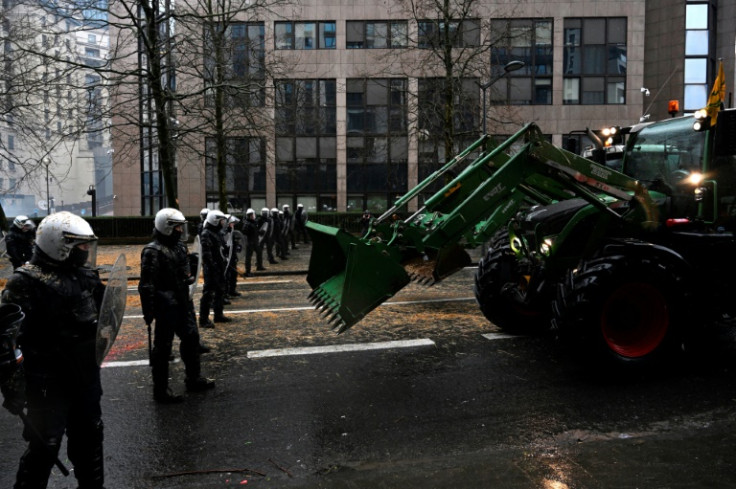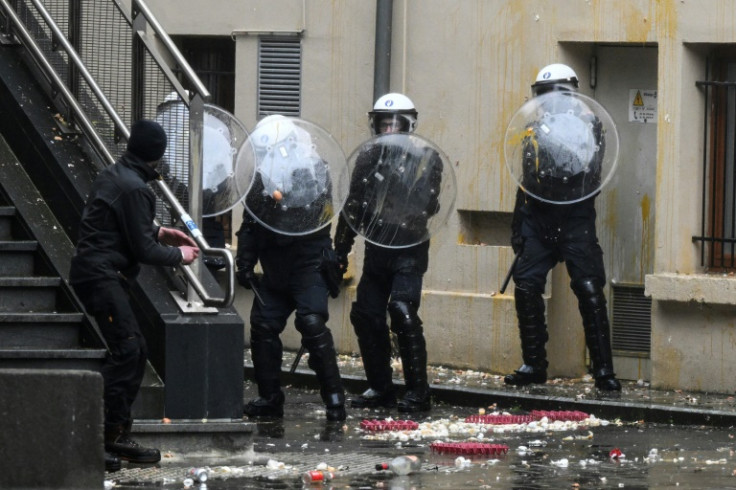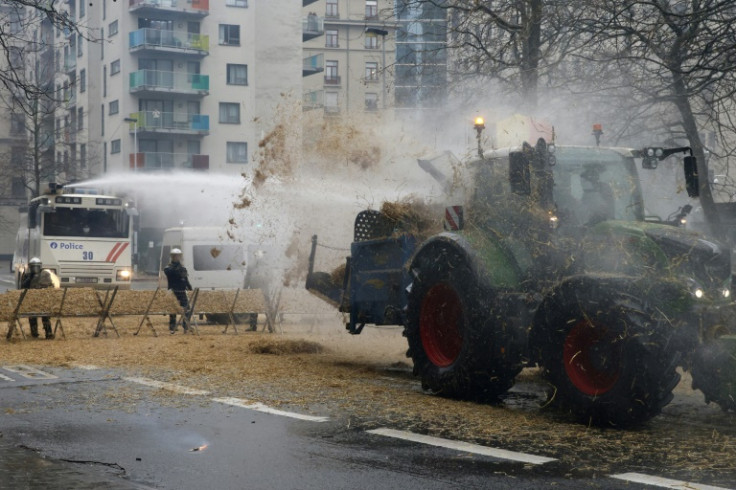
Farmers faced off with riot police in Brussels streets paralysed by tractors on Monday, as EU ministers huddled to try to streamline rules and red tape that are fuelling protests across the bloc.
An estimated 900 tractors brought the city's European quarter to a halt -- for the second time in a month -- with farmers hurling eggs, burning tyres and setting off fireworks while officers fired water cannon and tear gas to press them back.
While the day saw no serious clashes, it represented a new show of force in the Europe-wide farmers' movement, spurred by what are seen as excessive EU environmental requirements and unfairly cheap imports.
Agriculture ministers from the 27-nation bloc were in Brussels to examine proposals for simplifying the EU's much-maligned Common Agricultural Policy (CAP) -- in a new attempt to try to assuage farmers.
But for the protesters in Brussels -- who came from Spain, Portugal and Italy as well as Belgium -- none of it felt like enough.
"It's their responsibility to talk to us," said Marieke Van de Vivere, who came to protest against green regulations she says are strangling her family farm.
"When our horse poops, we have to tell them how much it poops, we have to pay for the horse that poops, we have to tell them what happens with the poop of the horse -- where it goes, what day."
"It's too crazy to explain," she said.
Adoracion Blanque, of the Spanish young farmers association, had a similar message.
"There are so many demands and bureaucracy that we farmers cannot continue producing," she told AFP.
The rolling farmer protests -- which saw French President Emmanuel Macron angrily heckled over the weekend -- have unnerved EU leaders concerned they could prove a boon for the far-right at European elections in June.
Brussels has given ground with a string of concessions in recent weeks.
These include an extended suspension of rules on leaving land fallow, and safeguards to stop Ukrainian imports flooding the market under a tariff-free scheme introduced after Russia's 2022 invasion.
In the short term, the latest European Commission proposals could further lift environmental constraints by easing demands for former livestock farmers to convert their land into grassland.
The commission also envisions cutting the number of on-site farm inspections by 50 percent, and granting leeway to farmers who fail to meet CAP requirements because of extreme weather.
Beyond that, Brussels has opened the door to a possible medium-term revision of the CAP, to be negotiated with lawmakers and member states, with a view to cutting more red tape.
Right now "we need something practical, something operational," France's agriculture minister Marc Fesneau told reporters upon arrival, arguing there is room for adjustments "within the current rules."
But he said meeting some demands "would require changing the legislation."
"Whether that happens before or after the European elections does not matter -- what matters is moving forward," he said.
Germany's agriculture minister, Cem Ozdemir, acknowledged "there is a lot of anger faced with promises that have not been kept."
"The current CAP is a bureaucratic monster," he said, calling for reforms to encourage "working the land rather than paperwork."
Elsewhere in Europe, the protest movement simmered on with thousands of Spanish farmers rallying outside the agriculture ministry in Madrid, holding placards that read: "The countryside is in the abyss and the government doesn't care."
Maria Villoslada Garcia, a 43-year-old winegrower from northern Spain, told AFP: "We expect solutions, but quickly" from the EU and Spain "because we are being suffocated" and "our work costs more than what it pays."










